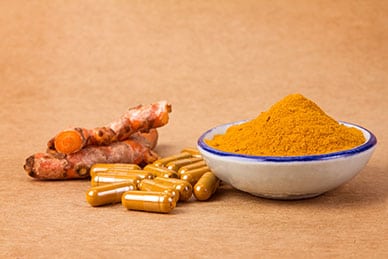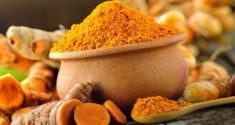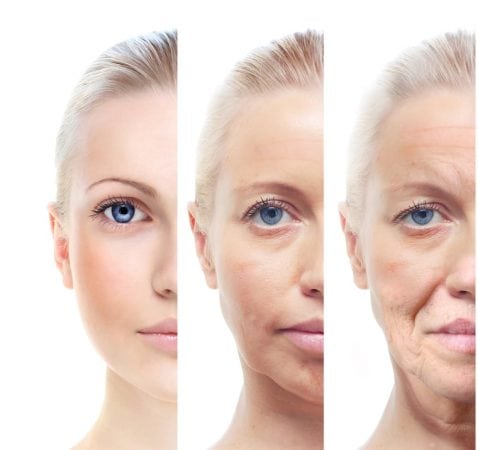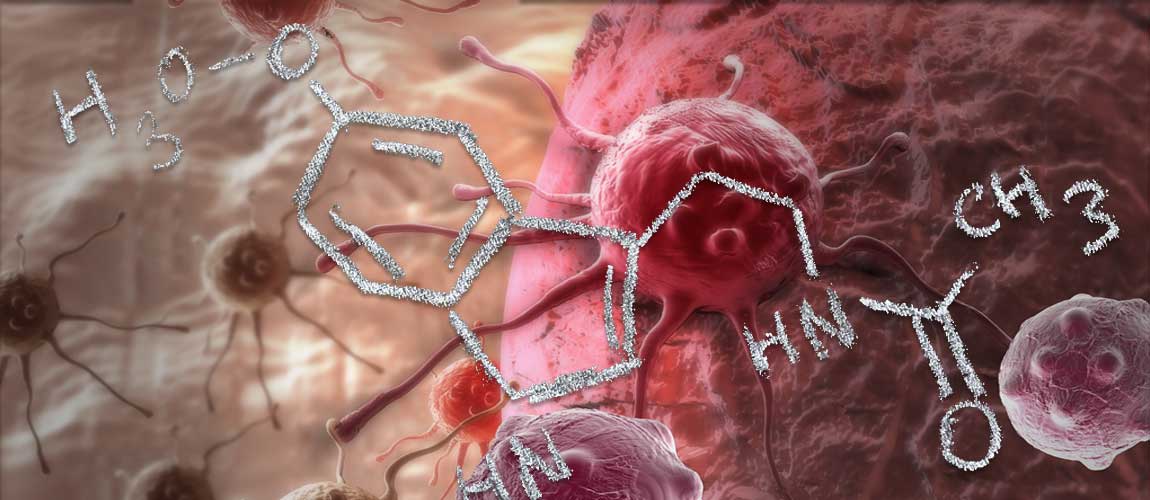Curcumin Shows Promise for Keeping Skin and Cells Healthy
Curcumin is the bioactive chemical in turmeric root, and is best known for its bright yellow color. This chemical has much more to offer than its distinctive color; there are also numerous health benefits of curcumin, including a variety that have just been discovered over the last few years. Here are some of the most important findings regarding this powerful plant compound.
Curcumin Effects on Melanoma and Breast Cancer Cells in the Lab
 Melanoma is the deadliest form of skin cancer and often the most difficult to treat. While melanoma makes up just 4 percent of skin cancer cases each year, it's responsible for 79 percent of skin cancer deaths.
Melanoma is the deadliest form of skin cancer and often the most difficult to treat. While melanoma makes up just 4 percent of skin cancer cases each year, it's responsible for 79 percent of skin cancer deaths.
A study has found that in the laboratory, curcumin can stop the growth of melanoma. The study, published in Cancer in 2005, found that curcumin blocks an important pathway melanoma and other cancers need to spread. The compound even causes cell death in melanoma cells.
Essentially, curcumin triggers apoptosis, the natural death process of cells, in cancer cells. Curcumin works by suppressing production of a protein normally found in cancer cells to prevent the cells from functioning. The larger the dose of curcumin delivered, the greater the amount of cell death.
In laboratory tests, this compound has also been found effective against other types of cancers, such as breast cancer. Evidence suggests that curcumin can target breast cancer with numerous anti-cancer effects that involve proliferation of cancer cells, estrogen receptor pathways, and human epidermal growth factor receptor 2 (HER2) pathways.
Recent research has found that curcumin can even offer promise in the treatment of neuroblastoma, a deadly form of cancer that usually affects children under the age of one. In a study published in Nanoscale, researchers found that attaching curcumin to nanoparticles helps target neuroblastoma cells that have become resistant to treatment.
It's important to note that studies have only been conducted with mice, and there have been no human trials yet. Because curcumin has low bioavailability, its potential in treating cancer in humans is limited without the use of a novel approach.
Curcumin and Chemotherapy Resistance
While curcumin has many anti-carcinogenic properties, it's very quickly metabolized by the body. Researchers have called for more trials and clinical studies to determine if it has therapeutic benefits in humans, potentially in combination with other forms of treatment.
One study examined whether curcumin could have benefits when combined with traditional chemotherapy to treat pancreatic cancer. This study, published in Carcinogenesis, investigated whether the chemical could overcome chemoresistance, a common problem in treating pancreatic ductal adenocarcinoma (PDAC).
Cancer stem cells are suspected to be the culprit in chemotherapy resistance in PDAC treatment as previous studies have found these stem cells can escape chemotherapy drugs. These stem cells are believed to be the primary cause of metastasis.
Research indicates that curcumin may be able to block chemoresistance, possibly due to a subunit of a polycomb protein group that are important in the maintenance of stem cells. The study found that curcumin blocks the pathway of a subunit called EZH2, making cells more receptive to chemotherapy.
Curcumin and Skin Health
 Lab studies have found that curcumin has antibacterial, antifungal, antiviral and anti-inflammatory properties, all of which can have benefits for skin health. As an antioxidant, curcumin can help protect the skin from free radical damage while supporting healthy inflammatory processes. Curcumin is also a modulator of phase II detoxification enzymes which are necessary for normal detox processes in the body and to protect against oxidative stress.
Lab studies have found that curcumin has antibacterial, antifungal, antiviral and anti-inflammatory properties, all of which can have benefits for skin health. As an antioxidant, curcumin can help protect the skin from free radical damage while supporting healthy inflammatory processes. Curcumin is also a modulator of phase II detoxification enzymes which are necessary for normal detox processes in the body and to protect against oxidative stress.
Some research indicates that curcumin may benefit common skin conditions such as psoriasis and scleroderma. Psoriasis is a common skin disease that can affect the uality of life and increase the risk of heart problems. Current psoriasis treatments take time and can risk damage to organs with chronic use. Curcumin has been found to inhibit immune pathways responsible for psoriasis, including cell signaling that increases inflammation and abnormal cell growth.
Benefits of Curcumin: Alzheimer's Studies
Alzheimer's disease is a progressive and often fatal neurodegenerative disease and the most common form of dementia. Alzheimer's leads to progressive cognitive deterioriation and estimates 5 to 6 percent of people over the age of 60. Dozens of studies have investigated whether curcumin may offer protection against Alzheimer's. Indian cuisine is typically very high in tumeric, and thus curcumin, and the country has a much lower prevalence of Alzheimer's; 4.4 times less than the United States.
One study investigating curcumin found that people who eat curry at least occasionally performed better on a standard test of cognitive function than those who never ate curry. It's believed that curcumin may offer promise because it can address the three ways in which Alzheimer's disease degrades nerve cells: inflammation, oxidative damage and the formation of beta-amyloid plaques.
A UCLA study published in the Journal of Alzheimer's Disease found that curcumin can help macrophages, or the body's "cell-eaters," clear amyloid plaques found in Alzheimer's disease. Curcumin also possesses antioxidant properties and helps support healthy cellular inflammatory processes. Alzheimer's disease degrades nerve cells through chronic inflammation.




